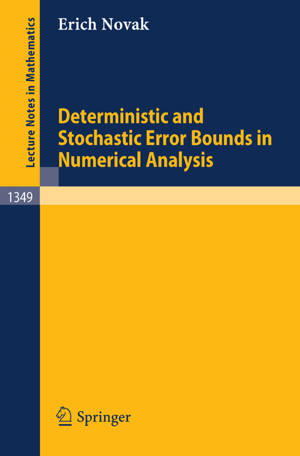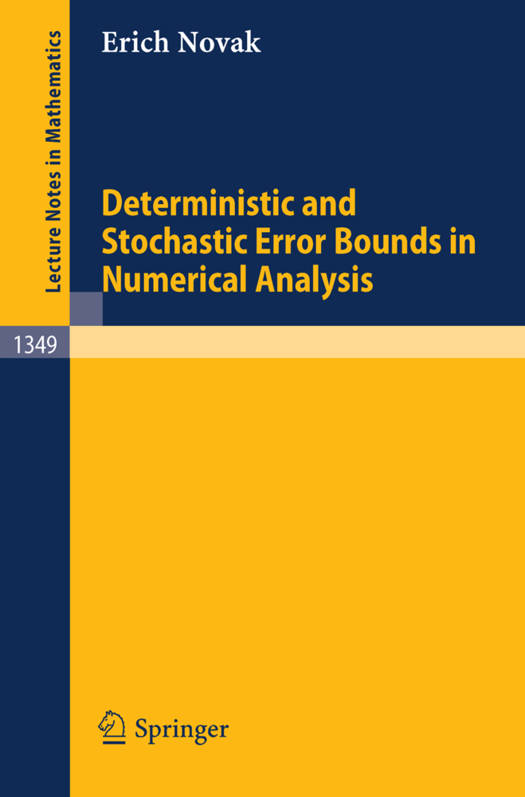
- Afhalen na 1 uur in een winkel met voorraad
- Gratis thuislevering in België vanaf € 30
- Ruim aanbod met 7 miljoen producten
- Afhalen na 1 uur in een winkel met voorraad
- Gratis thuislevering in België vanaf € 30
- Ruim aanbod met 7 miljoen producten
Zoeken
Omschrijving
In these notes different deterministic and stochastic error bounds of numerical analysis are investigated. For many computational problems we have only partial information (such as n function values) and consequently they can only be solved with uncertainty in the answer. Optimal methods and optimal error bounds are sought if only the type of information is indicated. First, worst case error bounds and their relation to the theory of n-widths are considered; special problems such approximation, optimization, and integration for different function classes are studied and adaptive and nonadaptive methods are compared. Deterministic (worst case) error bounds are often unrealistic and should be complemented by different average error bounds. The error of Monte Carlo methods and the average error of deterministic methods are discussed as are the conceptual difficulties of different average errors. An appendix deals with the existence and uniqueness of optimal methods. This book is an introduction to the area and also a research monograph containing new results. It is addressd to a general mathematical audience as well as specialists in the areas of numerical analysis and approximation theory (especially optimal recovery and information-based complexity).
Specificaties
Betrokkenen
- Auteur(s):
- Uitgeverij:
Inhoud
- Aantal bladzijden:
- 124
- Taal:
- Engels
- Reeks:
- Reeksnummer:
- nr. 1349
Eigenschappen
- Productcode (EAN):
- 9783540503682
- Verschijningsdatum:
- 26/10/1988
- Uitvoering:
- Paperback
- Formaat:
- Trade paperback (VS)
- Afmetingen:
- 156 mm x 234 mm
- Gewicht:
- 190 g

Alleen bij Standaard Boekhandel
+ 52 punten op je klantenkaart van Standaard Boekhandel
Beoordelingen
We publiceren alleen reviews die voldoen aan de voorwaarden voor reviews. Bekijk onze voorwaarden voor reviews.







